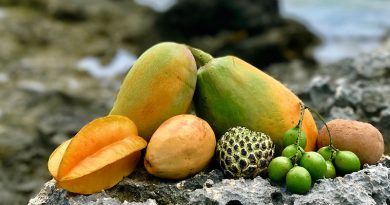Banish Bloating
We all know that uncomfortable feeling to some degree to other. It’s bothersome and can be downright embarrassing. It’s as though a foam cushion is in your belly, preventing you from zipping or buttoning that stylish pants or skirt suit chosen to impress at a business meeting.
Menopause without Medicine (Pt 3) – CLICK HERE
Bloating or abdominal distension is a phenomenon that everyone experiences at one time or another. Ironically, sometimes it’s the healthiest eaters who suffer most. Yes, bloating is quite a common complaint in the wellness world.
However, wholistic doctors, nutritionists, and functional medicine experts agree that the most common cause of bloating is how our bodies interact with what we eat.
Eastern approach
According to Ayurveda, an ancient Indian medical system of healthy living, our digestion is a crucial indicator of health, and chronic gas and bloating mean that the digestive system and overall health need attention. There are a number of natural and effective DIY remedies in Ayurvedic tradition that can prevent and alleviate the discomfort.
Eat cooked foods only: In Ayurveda the digestive system is likened to fire, so if we put cold water or food into it, it extinguishes. The stove “predigests” food before it reaches our mouths and stomachs, reducing the load on the digestive fire in processing it and converting it into fuel.
Use digestive spices: When consumed regularly with food, Ayurvedic spices can intensify the digestive fire and help prevent gas. Cumin seeds, ajwain (bishop’s weed) seeds, fennel seeds, freshly grated ginger, and hing (asafetida) are potent digestive spices.
Heat some ghee (clarified butter with myriad medicinal benefits) and add half a teaspoon of cumin, ajwain, fennel seeds and a pinch of hing. Then, grate fresh ginger into the pan, stir for about 30 seconds and add to vegetables or meat. Alternatively, place cumin, ajwain seeds, fennel seeds and a couple of pinches of hing in a blender for a spice you can add to savoury dishes.

Chew more slowly: In Ayurveda, HOW you eat matters as much as what you eat. When we chew in a hurriedly, our digestion suffers, and often leads to gas and bloating. By taking time and really chewing our food, we will also enjoy our food more.
There are three bioforces (doshas) responsible for health and disease in Ayurveda. One of these is the vata dosha, whose chief function is movement. When we move around too soon after eating or work in front of the computer, this bioforce is disturbed.
Sitting and eating slowly, with our full attention on our food, and then remaining still three to four minutes afterward, significantly improves digestion.
4. Chew fennel seeds after meal: Fennel seeds are revered for boosting digestion and staving off gas.
Half a teaspoon of fennel seeds with rock candy after meals is an excellent acid reliever. If you don’t suffer from acidity or heat-related issues, you can chew on half a teaspoon of fennel and ajwain seeds to counteract gas.

Western approach
The Western approach equally addresses the challenge of bloating.
Ditch salt: The extremely high sodium level in foods can cause dehydration, which contributes to bloating. Avoid cured meat, canned and frozen foods, most processed snacks and sauces and condiments such as soy sauce, mustard etc. Bread can also be an unsuspecting culprit.
Opt for herbs and spices instead of salt. When eating out, ask for condiments on the side and drizzle sparingly (or scrape off the excess). Use oil and vinegar instead of preservative-laden enhanced dressings.
Drink more water: Avoid alcohol and carbonated beverages. Staying hydrated helps prevent water retention since the body isn’t struggling to hold on to the water it has. Avoid alcohol (dehydrating) and carbonated beverages, which can cause a buildup of gas and bring on bloat.
Sip coffee or tea: The caffeine in coffee and tea has a diuretic effect. Tea and coffee have also been shown to be powerful anti-inflammatories when used regularly, with long-term benefits to digestive health. A cup or two a day is safe – just don’t go overboard.
RCH ROLL FEATURING JULIE PATT
Reduce hard-to-digest foods
Although packed with nutrients, cruciferous veggies like broccoli, cauliflower and kale are hard to digest, causing gas and bloating when they ferment in the digestive tract. Others to watch out for are beans, lentils, whole grains and dairy.
Pump up on potassium: This mineral is vital to cell function, including regulating fluid balance. Foods rich in this (avocado, banana, sweet potato, pumpkin, tomatoes, leafy greens, oranges and cantaloupe) can help counteract the effects of sodium and mitigate bloating.
Do diuretics: Some foods have a mild diuretic effect, with asparagus being especially powerful at fighting bloat as it contains the amino acid asparagine. It also has high quantities of glutathione, noted for detoxification. Other recommended diuretics are citrus, celery, beets and apple cider vinegar.
Soothe: Choose foods that soothe the digestive system. Papaya is packed with potassium and also contains papain, a digestion facilitating enzyme that can suppress gas and bloating. Parsley has also been noted for its diuretic effects, while peppermint also eases digestion.
Superfoods: Cucumber is an anti-bloat food that contains silica, caffeic acid and vitamin C, which all help reduce swelling and discourage water retention. Kiwi contains actinidin, a compound which supports healthy digestion. Kiwi is also rich in potassium and rosemary is a powerful antioxidant used for digestive disorders for millennia.
Fight inflammation with food: Certain foods calm the stress response in the digestive tract. Choice recommendations are:
Berries – loaded with antioxidants and dark chocolate, rich in inflammation-fighting flavonoids.
Eggs – Besides protein, fat, and vitamin A, they boast zeaxanthin and lutein, two potent carotenoids that help fight inflammation.
Olive oil – filled with antioxidants and heart-healthy fats.
Salmon, mackerel, and sardines – rich in omega-3 fatty acids, researched extensively for their anti-inflammatory properties.
Probiotics
Found in fermented foods such as yogurt and kefir, probiotic bacteria promote healthy digestion and fight swelling and inflammation. Alternatively, choose a probiotic supplement with multiple types of bacteria as they each cover slightly different things.




